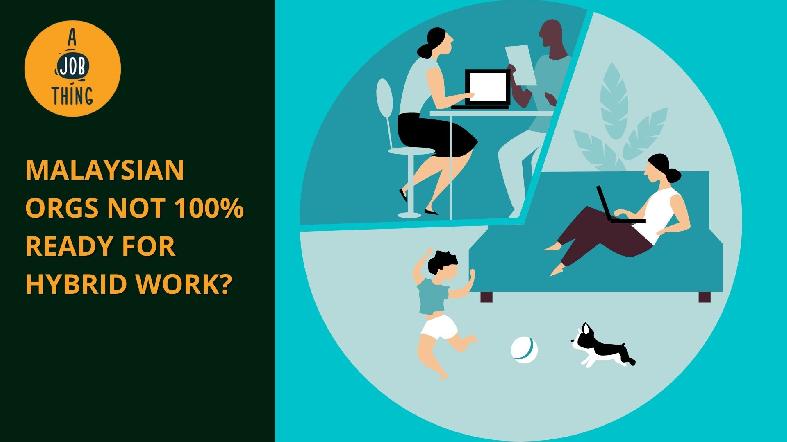
Malaysian Companies Not 100% Ready for Hybrid Work
Are You Hiring?
Find candidates in 72 Hours with 5+ million talents in Maukerja Malaysia & Ricebowl using Instant Job Ads.
HIRE NOW
Over the last two years, the pandemic has caused significant changes in how we work, with many firms moving from an office-centric culture to more flexible working methods. Some have gone completely remote, while others have adopted other ideas of hybrid work arrangements. Then there are those whose post-pandemic work models are entirely similar to their pre-pandemic job models.
More about the survey
Cisco's recent study, "Employees are ready for hybrid work, are you?" demonstrates how the reality varies across ASEAN. In general, most people in ASEAN believe hybrid work arrangements have benefited them, but only about one in four workers believes their organisation is "very prepared" for hybrid work.
However, the study found that employees in all nations surveyed do not want to be at either extreme - back in the office or working entirely remotely. In fact, they seek a middle ground that allows them the flexibility to create their own particular version of work-life integration that is beneficial to both them and their company.
The report highlights the results of a double-blind poll of over 28,025 full-time employees conducted between January and March 2022. Respondents were selected from 27 markets covering every continent. Respondents came from various businesses, including financial services, government and public service, healthcare, and IT.
More must be done in Malaysia to prepare for the future of hybrid work
According to Cisco's research, three in five (60 %) Malaysian employees believe that a hybrid work style has enhanced job quality. Three-quarters of Malaysian employees (75 %) believe their role can now be completed just as effectively remotely as in the workplace. However, only one in five (20 %) Malaysian employees believe their company is "very prepared" for a hybrid work future, a rate below the global average of 23 per cent.
Hana Raja, MD of Cisco Malaysia, believes that the past two years have demonstrated that work is no longer defined by where people go but by what they do. In Malaysia, employees and businesses enjoy tangible benefits from enhanced employee welfare to increased productivity and work performance in a hybrid normal.
Indeed, the impact of hybrid working is visible, with time away from the office improving work-life balance for 79 per cent of Malaysian employees – in contrast to the regional average of 81 per cent. A more flexible work schedule (71%) and greatly reduced or completely removed commuting times (49%) all contribute to the improvement. More specifically, nearly two-thirds of Malaysians (68%) saved at least 4 hours per week when they worked from home, and almost a quarter (29%) saved eight or more hours per week.
One of the most intriguing findings from Cisco's analysis is that hybrid work has resulted in improved financial well-being across all markets studied. Four in five (82%) Malaysian respondents said their financial situation has improved, with an average savings of RM32,891 per year.
The top three savings categories include 86 per cent rated savings on fuel or commuting, followed by an 80 per cent ranked decrease in spending on food and entertainment. However, more than eight in ten (83 per cent) believe they can maintain these savings in the long run, and 60 per cent would consider these savings when contemplating switching jobs.
The need to improve Malaysian organisations' technology readiness
While technology will continue to be essential in providing a future with progressively diverse and distributed workforces, almost two-thirds (64%) of Malaysian respondents felt that having connectivity problems regularly is career-limiting for remote workers. According to the report, 36% of employees believe their organisation still requires the proper networking infrastructure.
Only 61% believe their business presently has the necessary competencies and policies in place. Only 62 per cent believe that all workers across their organisation understand the cyber hazards associated with hybrid work, while 67 per cent believe corporate leaders are aware of the threats. Juan Huat Koo, Cisco's Cybersecurity Director for ASEAN, feels that technology is a vital enabler of development in the hybrid workplace, and that it must be supported by end-to-end integrated security.
According to Koo, organisations should prioritise a strong security posture as the foundation for all digitalisation efforts and ensure that cybersecurity is at the heart of their technology architecture. As more people and devices connect to corporate applications, organisations will need to strengthen security and build greater vigilance by ensuring secure access and protecting users and endpoints on the network and the cloud.
Source: Techwire Asia


